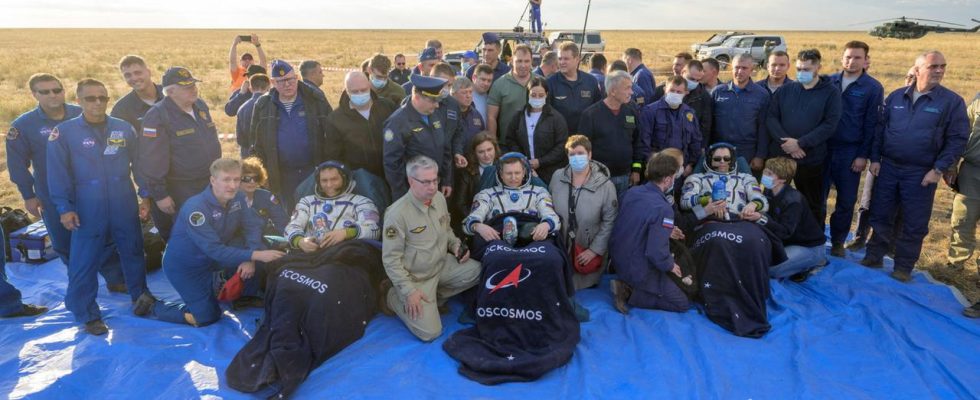The astronauts Rubio, Prokopyev and Petelin were actually supposed to stay in space for 180 days. But a breakdown delayed their return home. US astronaut Rubio is now especially looking forward to hugging his children.
US astronaut Frank Rubio and the two Russian cosmonauts Sergei Prokopyev and Dmitri Petelin have landed safely back on Earth – after more than a year in space.
The three astronauts, who launched to the ISS on September 21 last year, landed in the steppe of the Central Asian Republic of Kazakhstan on Wednesday with the Soyuz MS-23 space capsule. The Russian space agency Roscosmos showed photos and videos of the picture-perfect landing. The astronauts were therefore fine.
Longest ISS mission
With 371 days in space, it was the longest mission on the International Space Station (ISS), Roscosmos announced. It wasn’t actually planned that way. The astronauts were supposed to return after six months, but damage to their Soyuz capsule prevented them from returning home as planned. A replacement spaceship was needed, which doubled the length of stay.
To date, only two cosmonauts have been in space for a longer period of time: Valeri Polyakov spent a total of 437 days in space from 1994 to 1995, and Sergei Avdeyev spent 379 days from 1998 to 1999. Both had worked on the ISS predecessor station Mir.
US record
Meanwhile, American astronaut Frank Rubio set a US record. Due to the involuntary extension of the ISS mission, Rubio stayed in space for 371 days instead of the planned 180 days, thus surpassing the record of his compatriot Mark Vande Hei.
“It’s good to be home,” Rubio said. If he had known in advance about the length of the mission, he would not have agreed. “Hugging my wife and children will be the most important thing, and that’s probably what I’ll focus on in the first few days,” said the military doctor and helicopter pilot.
Damage to the Soyuz capsule
A leak was discovered on the trio’s Soyuz MS-22 capsule in December, which experts believe was caused by the impact of a micrometeorite. It had therefore damaged the outer coating and a cooling unit. Both Roscosmos and NASA assured at the time that they saw no threat to the operation of the ISS. Because of the damage, the return planned for March was postponed. The Soyuz MS-23 was sent to the ISS from the Baikonur Cosmodrome in Kazakhstan as a replacement spacecraft.

